




Are you tired of wasting time and energy on hand-washing your dishes, only to still have some things come out dirty or clogged drains? It’s a common problem many of us face, but there’s a solution that can make all the difference – properly loading your dishwasher. Yes, you heard it right! The way you load your dishwasher can either be a time-saving miracle or a fool’s errand.
So, how do you get the best results from your trusty dishwasher? The first thing you need to know is that pre-rinsing your dishes before putting them in the dishwasher is not necessary. In fact, it may even lead to worse results. Dishwashers these days are designed to handle dirty dishes, and rinsing them beforehand is just a waste of time and water.
But that’s not all, the way you arrange your dishes in the dishwasher also matters. It’s important to group similar items together and make sure they’re not blocking the water spray arms. Plus, putting plates and utensils facing the same direction will ensure they’re evenly washed and dried. And don’t forget to scrape off any excess food particles, as they can clog the dishwasher’s filter and affect its performance over time.
Another tip to keep in mind is to always use the right detergent for your dishwasher. There are different types available, and using the wrong one can lead to poor cleaning results. So, make sure to read the instructions on the detergent packaging to find the best one for your machine.
Lastly, it’s important to remember that not every item should go in the dishwasher. Some delicate or non-dishwasher-safe items, like wooden cutting boards or certain types of cookware, should always be hand-washed to avoid damage. So, before loading everything into the dishwasher, take a moment to check if it’s dishwasher-safe.
By following these simple tips, you can ensure that your dishwasher does its job effectively and efficiently, saving you time and effort. So, next time you’re faced with a sink full of dirty dishes, stop and think – is hand-washing really the best option? The answer is probably not. Give your dishwasher a chance to shine, and you won’t be disappointed with the everyday results it delivers.
Sort and Pre-rinse Dishes
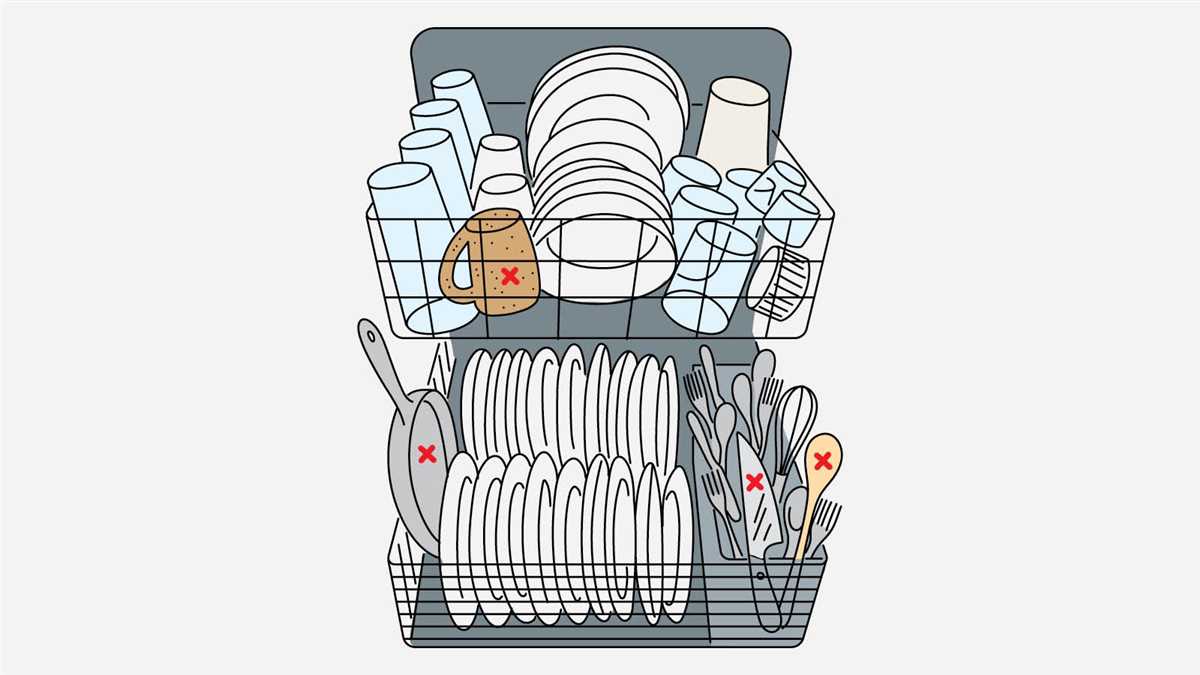
When it comes to properly loading a dishwasher, one of the most important steps is to sort and pre-rinse your dishes before placing them in the machine. This ensures that your dishes come out clean and sparkly every time, without any residue or stuck-on food.
Why Sort and Pre-rinse?
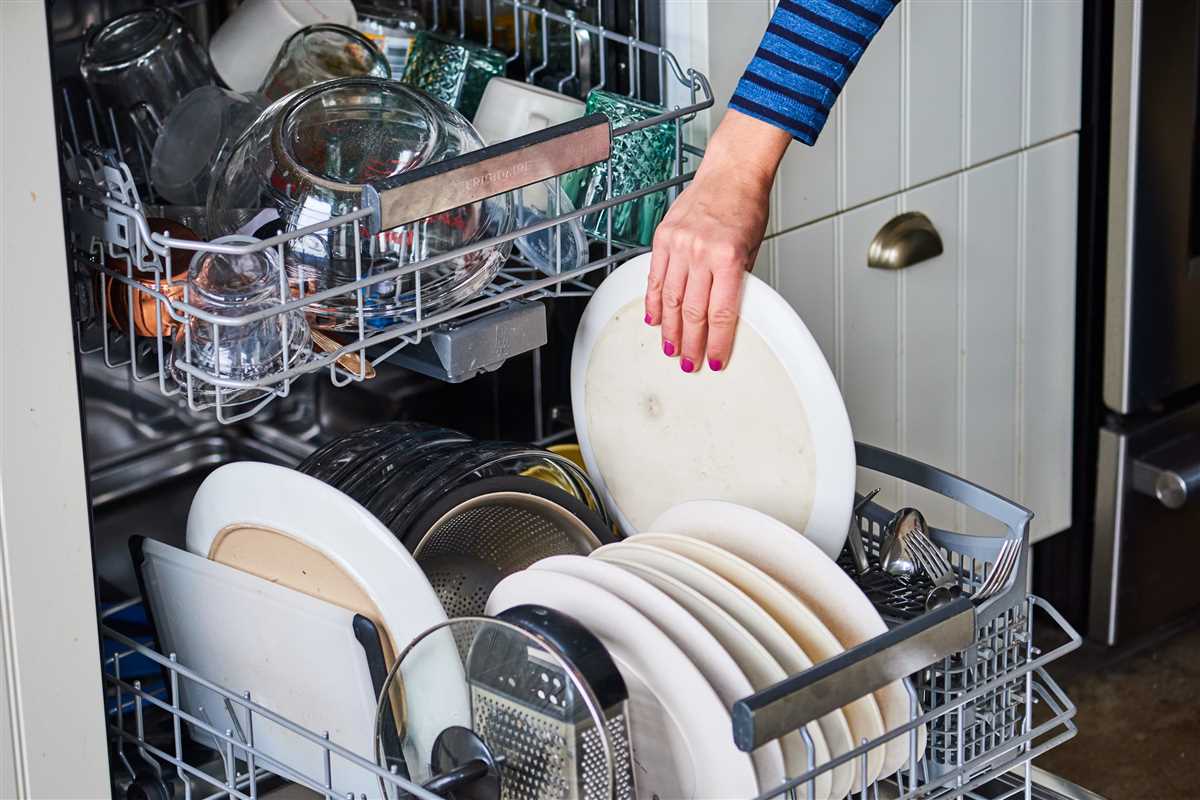
The main reason to sort your dishes before loading them is to make the cleaning process more efficient. By grouping similar items together, you can maximize the space in the dishwasher and ensure that each item gets the proper amount of water and detergent.
Additionally, pre-rinsing your dishes can help remove any excess food particles that could clog the dishwasher’s filters or spray arms. This step also helps to prevent food from redepositing on other dishes during the wash cycle.
How to Sort and Pre-rinse
Here are some tips for sorting and pre-rinsing your dishes:
- Sort your dishes by type, placing plates, bowls, and utensils together. This makes it easier to load and unload the dishwasher.
- Remove any large food debris from your dishes before loading them. You can use a rubber spatula or paper towel to scrape off excess food.
- Rinse your dishes under running water to remove any remaining food particles. Be sure to use only cold water, as hot water can actually set proteins and make cleaning more difficult.
- Avoid over-rinsing your dishes. While it’s important to remove food particles, you don’t need to hand-wash them completely. A quick rinse is sufficient.
By following these tips, you can ensure that your dishwasher does its job effectively and efficiently. Remember, a properly loaded dishwasher will result in cleaner dishes and better overall results.
Load the Dishwasher Correctly
Properly loading your dishwasher can make a big difference in how clean your dishes come out. By following these tips, you can ensure that your dishwasher is functioning efficiently and producing the best results.
1. Rinse Off Any Excess Food
Before loading your dirty dishes into the dishwasher, make sure to rinse off any excess food. While it’s not necessary to pre-rinse your dishes, doing so can help prevent clogging and ensure that your dishwasher is not overloaded with food particles.
2. Load Dishes in an Organized Manner
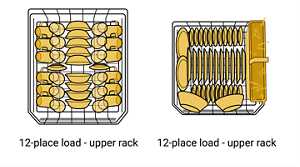
When loading your dishwasher, it’s important to handle the dishes with care. Stack them properly and make sure they are evenly spaced to allow for proper water circulation. Stacking dishes too closely together may result in them not getting fully cleaned.
3. Load the Dishwasher from Back to Front
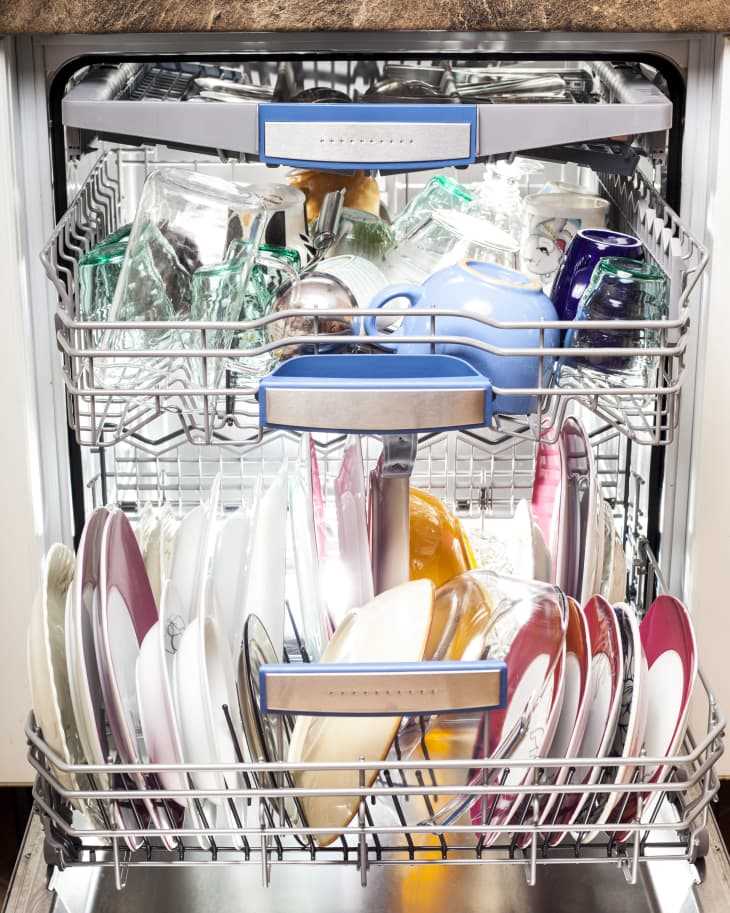
Load the dishes in your dishwasher from back to front, starting with the larger items. This will ensure that the water can reach all the dishes and provide a thorough cleaning. It also allows for easy unloading, as you can start with the dishes in the front and work your way back.
4. Use the Recommended Amount of Detergent
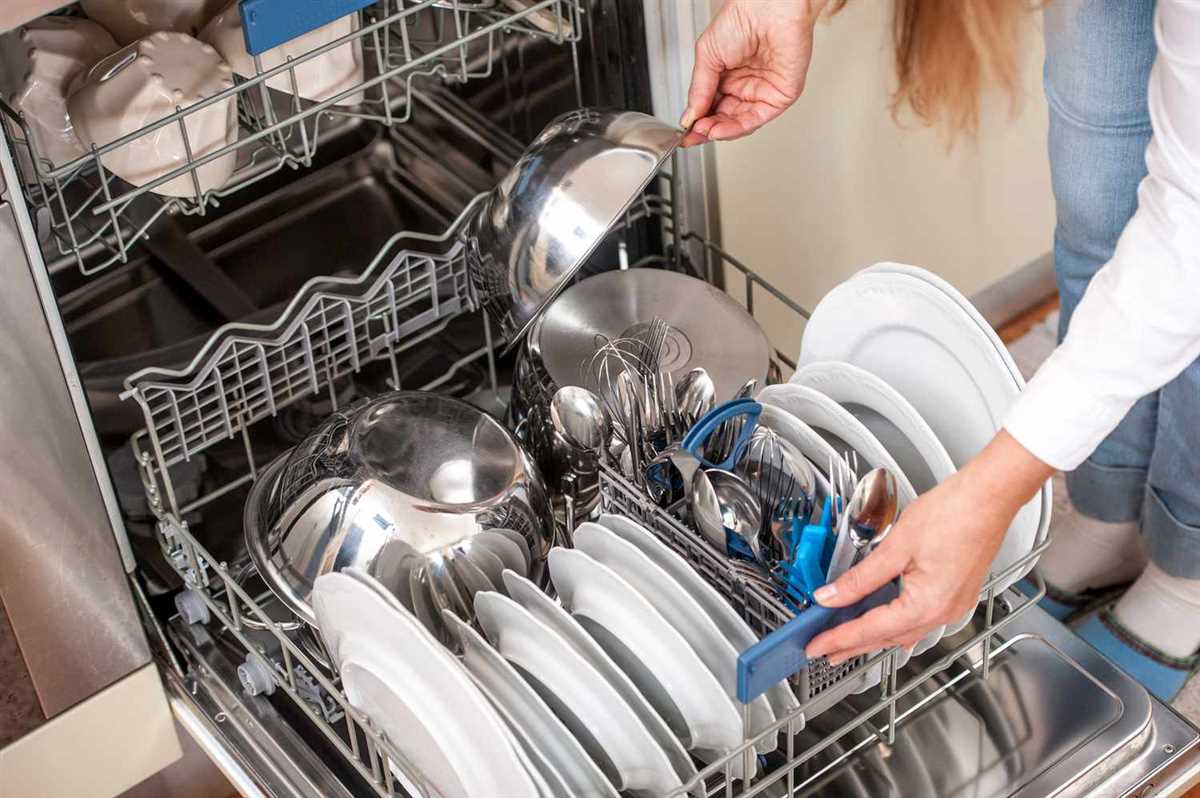
When it comes to dishwasher detergents, more is not necessarily better. Follow the instructions on the detergent packaging and use the recommended amount. Using too much detergent can result in excessive suds and may leave a residue on your dishes.
5. Avoid Putting Non-Dishwasher Safe Items Inside
It may be tempting to load anything and everything into your dishwasher, but some items are simply not dishwasher safe. This includes delicate glassware, wooden utensils, and certain plastics. Always check the labels on your dishware to ensure they can be safely washed in the dishwasher.
6. Make Sure the Dishwasher is Full
Running your dishwasher when it’s only half full wastes water and energy. Wait until the dishwasher is full before running a cycle to maximize efficiency and get the most out of each wash.
7. Check and Clean the Dishwasher Regularly
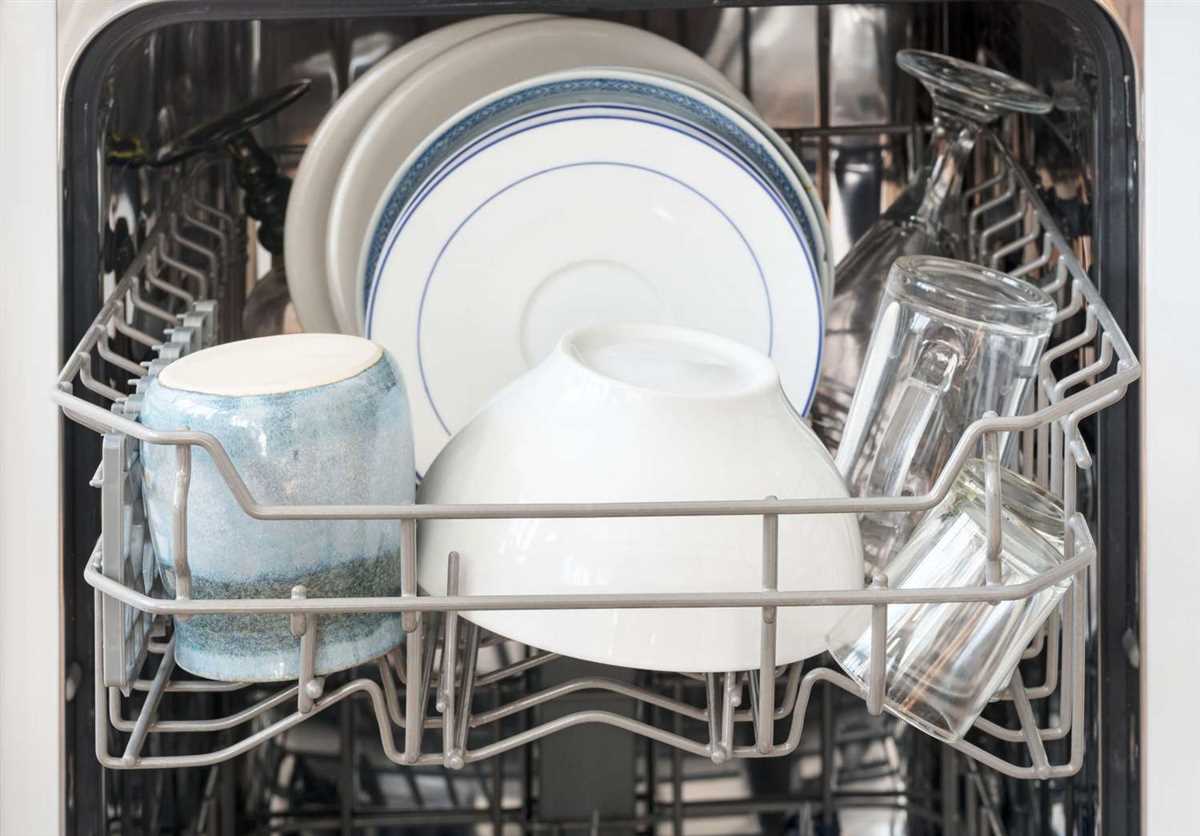
Like any other appliance, your dishwasher needs regular maintenance to function optimally. Check for any clogs or blockages in the spray arms, filter, and drain. Clean them as needed to ensure good water flow and avoid any potential issues.
By following these tips, you can load your dishwasher correctly and achieve cleaner dishes with each wash. Remember, using proper loading techniques and taking care of your dishwasher will result in better cleaning results and a longer lifespan for your appliance.
Use the Right Dishwashing Detergent
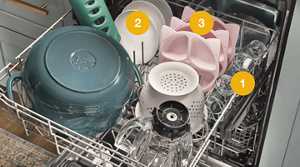
One of the most important factors in getting your dishes clean is using the right dishwashing detergent. It doesn’t matter how well you load your dishwasher or how much heat the appliance generates, if you don’t use the proper detergent, your cleaning results won’t be as good as they could be.
So, why is it important to use the right detergent? Well, for one, using a full dose of detergent will ensure that your dishes come out clean. If you only use a half dose or less, your dishes may not be properly cleaned.
Plus, different detergents are specially formulated to tackle different types of stains and food residue. Some detergents are designed to break down grease and oil, while others are better at removing tough food particles. Choosing the right detergent for your specific needs can make a big difference in the results you achieve.
Another reason why using the right detergent is important is because some detergents have built-in rinse aids or other cleaning agents. These additives can help to remove spots and streaks from your dishes, making them look cleaner and shinier.
Using the wrong detergent can lead to clogged spray arms and filters in your dishwasher. This can result in poor cleaning results and may even cause damage to your appliance. So, it’s best to stick with detergents that are recommended for use in dishwashers.
If you’re not sure which detergent to use, check the manufacturer’s instructions for your dishwasher. They may recommend a specific brand or type of detergent that works best with your appliance.
Finally, it’s worth mentioning that using too much detergent can also cause problems. Excess detergent can leave behind a residue on your dishes and in your dishwasher, making them appear dirty and potentially clogging the appliance. So, be sure to follow the manufacturer’s guidelines for the right amount of detergent to use.
In conclusion, using the right dishwashing detergent is essential for getting the best cleaning results from your dishwasher. Take the time to choose a detergent that suits your needs and follow the recommended dosage instructions. Your dishes will thank you!
Run the Dishwasher on the Right Cycle
Putting your dishes in the dishwasher is only half the battle. You also need to make sure you’re running the dishwasher on the right cycle to get the best results. Running the wrong cycle can lead to dishes that aren’t fully clean or dishes that are still wet at the end of the cycle.
One important thing to keep in mind is that not all dishwashers are the same. Some dishwashers have different cycles or options that might require you to adjust your usual routine. It’s important to read the manual for your specific dishwasher to understand the different cycle options and what they’re best used for.
If you’re not sure which cycle to use, a general rule of thumb is to use a normal or regular cycle for everyday dishes, and a heavy or pots and pans cycle for more heavily soiled items like cookware or baking dishes. Using a delicate cycle for fragile items like glassware or china can help prevent any damage.
Another tip is to avoid overloading the dishwasher. While it might be tempting to cram as many dishes as possible into each load, overcrowding can prevent the water and detergent from properly reaching all the dishes, resulting in poor cleaning results. Plus, putting too many items in the dishwasher can increase the risk of dishes getting chipped or broken during the cycle.
If you have dishes with dried-on or stuck-on food, it’s best to give them a quick rinse or scrape off any excess food before loading them into the dishwasher. Pre-rinsing or scrubbing dishes that need it can help improve the cleaning results. However, it’s important to note that modern dishwashers are designed to handle most food particles, so there’s no need to hand-wash every dish before putting it in the dishwasher.
One thing you definitely should avoid doing is pre-rinsing your dishes under running water before putting them in the dishwasher. Not only is it a waste of water, but it also makes the dishwasher’s job less effective. Dishwasher detergents are formulated to work best when there is some dirt or food particles on the dishes to help break down and remove grease and grime.
Finally, pay attention to water temperature. Most dishwashers work best with hot water, so make sure your water heater is set to a temperature of at least 120°F (49°C). This will help ensure that the dishes are properly cleaned and sanitized.
By following these tips and running your dishwasher on the right cycle, you can enjoy cleaner dishes and a more efficient cleaning process. It’s a win-win for both you and the environment, as using the dishwasher saves water and energy compared to hand-washing dishes.
Maintain and Clean the Dishwasher Regularly
To ensure that your dishwasher continues to function properly and provide you with clean dishes, it’s important to maintain and clean it regularly. Here are some tips to help you keep your dishwasher in great shape:
1. Clean the Filter
One of the most important parts of the dishwasher to clean regularly is the filter. The filter is responsible for trapping any food particles or debris that may be present on your dishes. If the filter is not cleaned regularly, it can become clogged and affect the dishwasher’s cleaning performance. To clean the filter, remove it from the dishwasher and rinse it under running water.
2. Check the Spray Arms
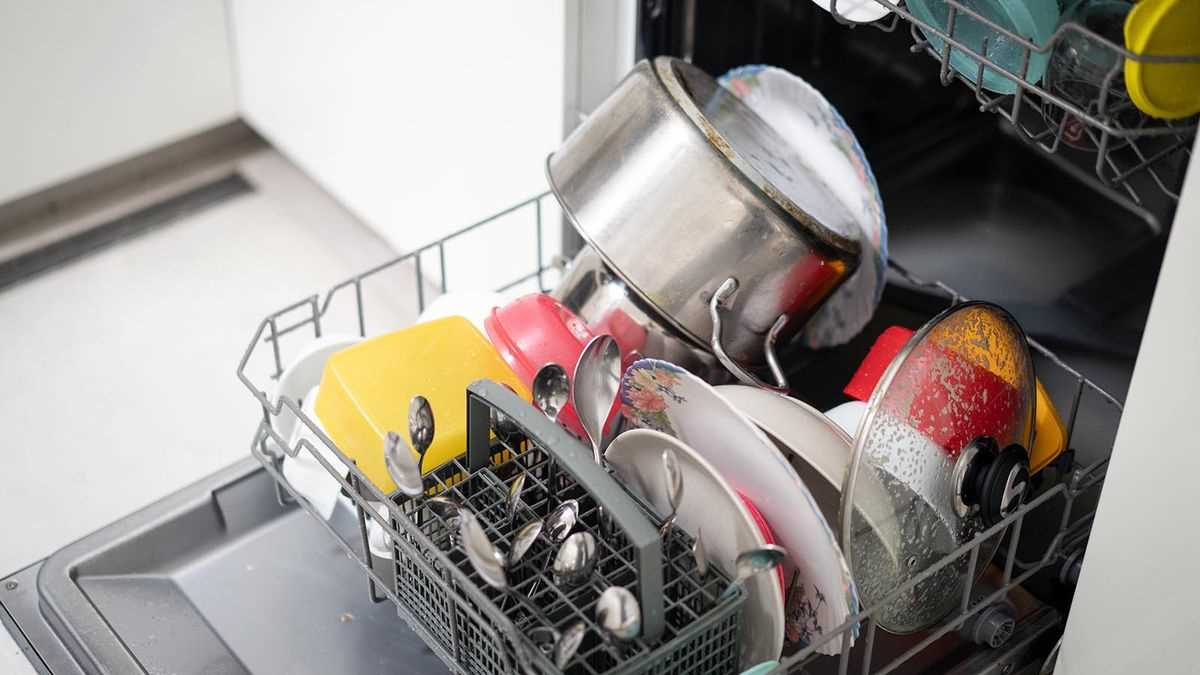
The spray arms of your dishwasher are responsible for spraying water onto the dishes for cleaning. Over time, these spray arms can become clogged with mineral deposits or food particles. It’s important to check the spray arms regularly and clean them if necessary. To clean the spray arms, simply remove them from the dishwasher and rinse them under running water.
3. Inspect the Dish Racks
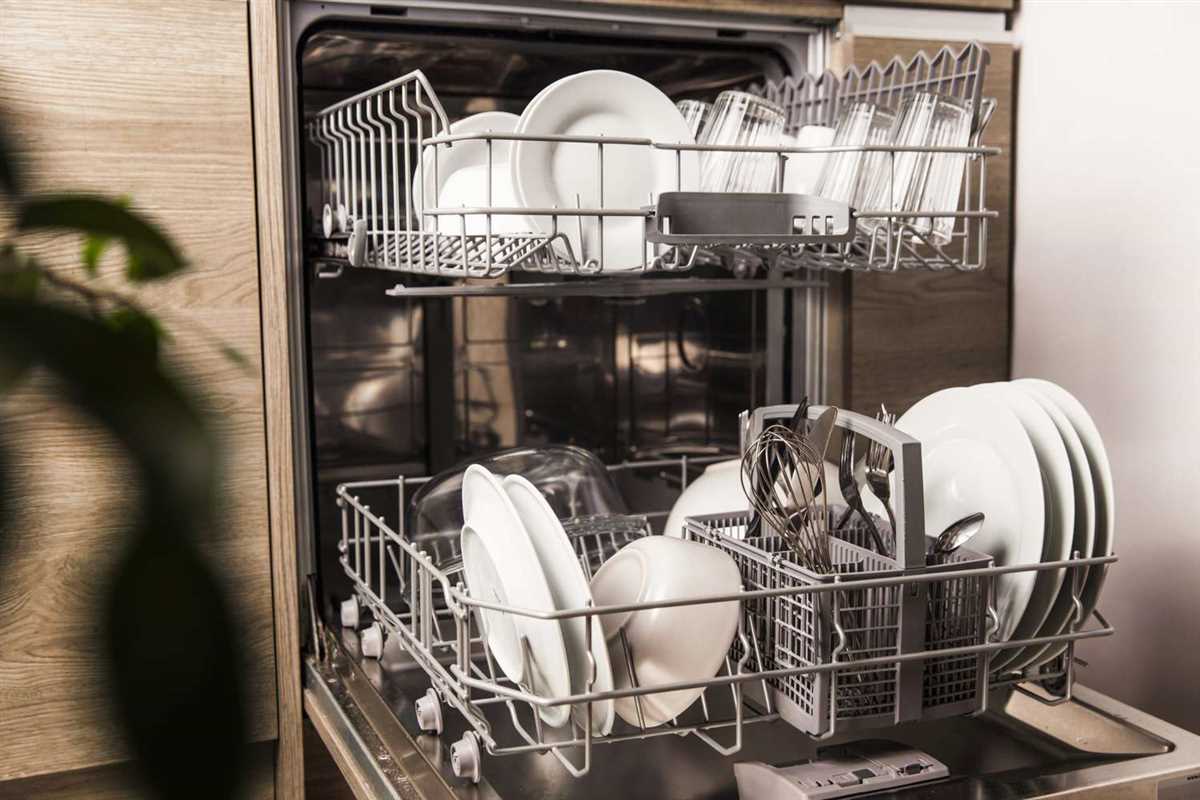
The dish racks in your dishwasher can also become dirty and affect the cleaning performance. Inspect the dish racks for any food particles, grease, or mineral deposits. If needed, remove the dish racks and scrub them with a mixture of dish soap and water. Rinse them thoroughly before placing them back in the dishwasher.
4. Run Vinegar Cycle
Every few months, run a vinegar cycle in your dishwasher to remove any built-up mineral deposits. Simply place a cup of white vinegar in a dishwasher-safe container on the top rack of your dishwasher and run a hot water cycle. The vinegar will help to break down any mineral deposits and leave your dishwasher cleaner and fresher.
5. Wipe Down the Interior
Regularly wipe down the interior of your dishwasher with a damp cloth or sponge. This will help to remove any food particles or spills that may have accumulated over time. Pay special attention to the door seal and the edges of the dishwasher, as these areas can often harbor dirt and grime.
By following these tips, you can ensure that your dishwasher stays clean and in good working condition. Regular maintenance and cleaning will not only improve the cleaning results but also extend the lifespan of your dishwasher.
FAQ
How should I load my dishwasher to get better cleaning results?
To get better cleaning results, make sure you load your dishwasher properly. Start by scraping off excess food from the dishes, but there is no need to pre-rinse. Load the dishes with the dirty side facing the water spray, which is usually located at the bottom of the dishwasher. Make sure the dishes are spaced properly and not touching each other. Also, avoid blocking the detergent dispenser. Lastly, do not overload the dishwasher as it can hinder the water spray and cleaning process.
Should I pre-rinse my dishes before loading them into the dishwasher?
No, pre-rinsing your dishes before loading them into the dishwasher is not necessary. Simply scrape off the excess food particles and load the dishes directly into the dishwasher. Modern dishwashers are designed to handle dirty dishes and the detergent is formulated to work best with some food residue. Pre-rinsing can actually waste water and energy, so it is best to just load the dishes as they are.
Where should I place the dirty dishes in the dishwasher?
When loading the dishwasher, make sure to place the dirty dishes with the dirty side facing the water spray. The water spray is usually located at the bottom of the dishwasher, so arrange the dishes accordingly. This allows the water and detergent to directly hit the dirty surfaces and ensure proper cleaning. By positioning the dishes correctly, you can improve the cleaning results and avoid any missed spots or leftover food residues.
Can I load my dishwasher with the dishes touching each other?
No, it is not recommended to load your dishwasher with the dishes touching each other. When the dishes are touching, the water and detergent may not be able to reach all the surfaces properly, resulting in incomplete cleaning. It is important to space out the dishes and ensure that there is enough room for the water spray to reach all the surfaces. Proper spacing also prevents the dishes from becoming nested, which can lead to poor cleaning results.
What should I avoid when loading my dishwasher?
When loading your dishwasher, there are a few things you should avoid to ensure better cleaning results. Firstly, avoid overloading the dishwasher. Overloading can block the water spray and prevent proper cleaning. Secondly, avoid blocking the detergent dispenser. Make sure the dishes or utensils are not obstructing the dispenser so that the detergent can dissolve effectively. Lastly, avoid placing fragile items such as fine china or crystal in the dishwasher, unless they are labeled as dishwasher-safe. These items may not withstand the heat and pressure of the dishwasher.
Why is it important not to pre-rinse the dishes before loading them into the dishwasher?
Pre-rinsing dishes before loading them into the dishwasher is not necessary and can actually be wasteful. Dishwashers are designed to handle dirty dishes and the detergent is formulated to work effectively with some food residue. Pre-rinsing can waste water and energy, as well as remove certain food particles that the dishwasher detergent needs to work on. By not pre-rinsing, you can save time, water, and energy, while still achieving clean dishes.













